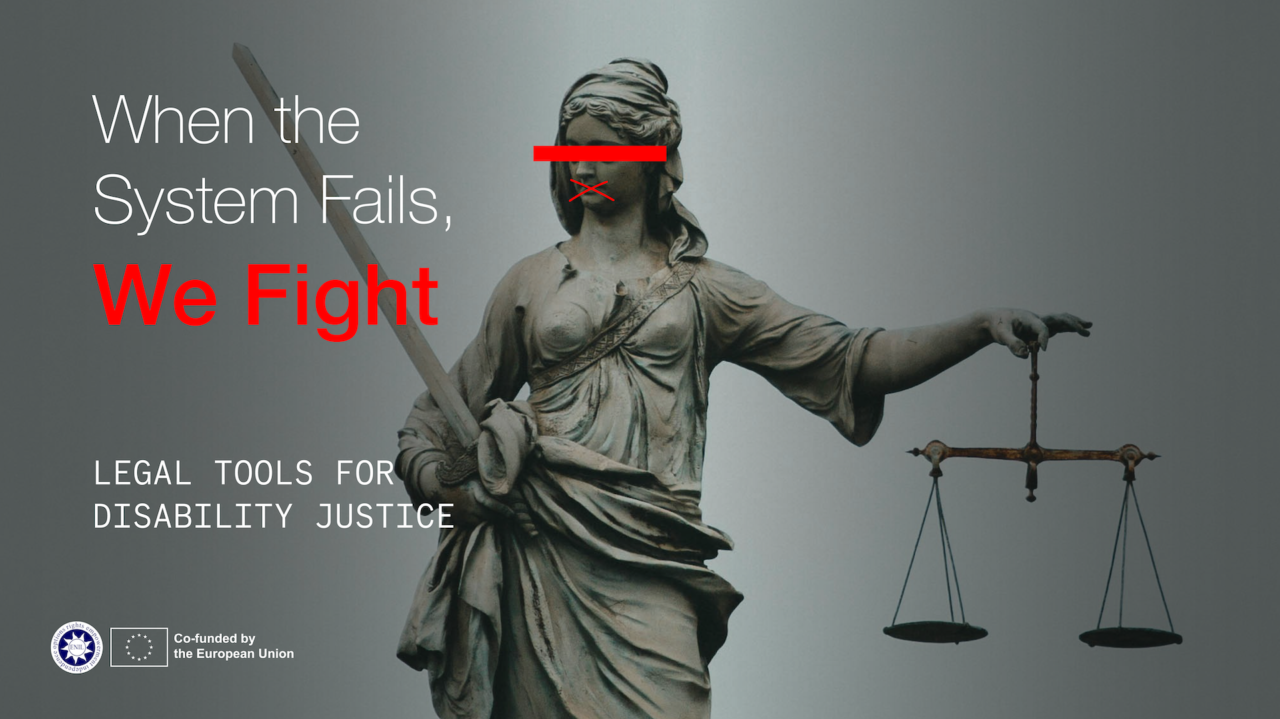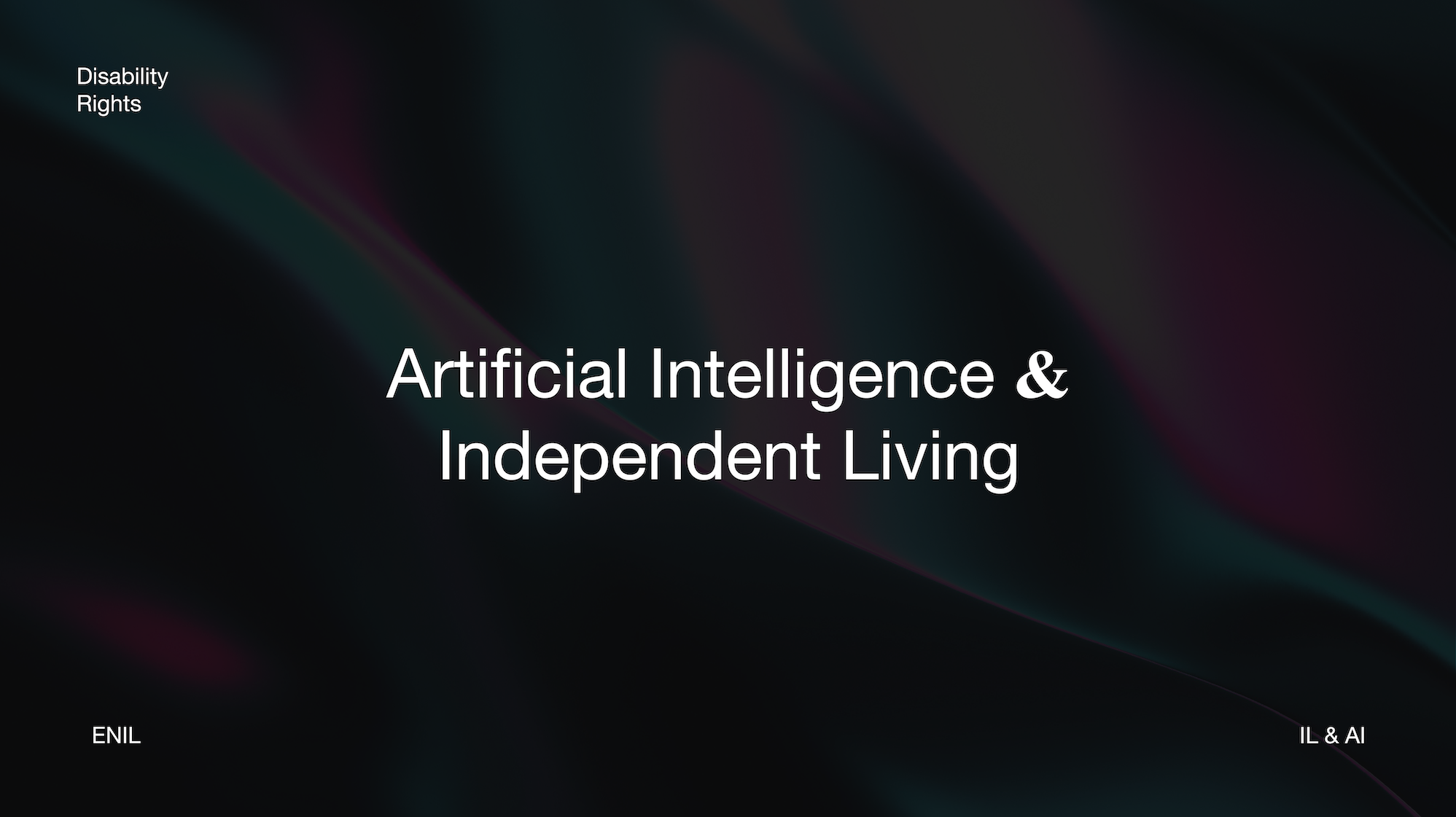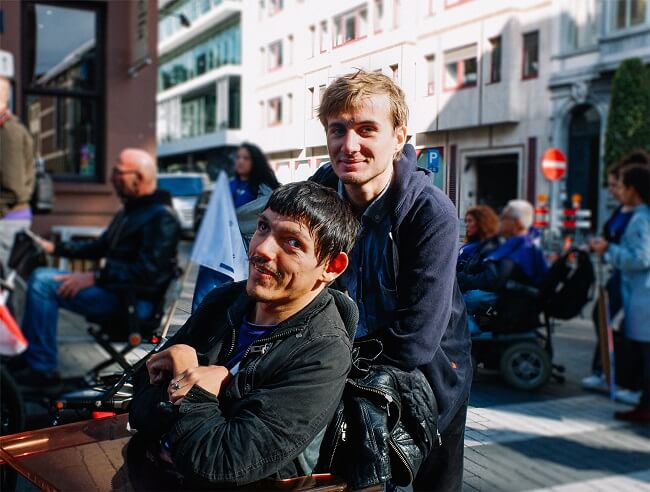Strategic litigation is the use of legal action to bring about broader social or policy change beyond the individual case. It focuses on addressing systemic violations of rights, setting legal precedents, and promoting changes in laws or practices that affect a wider group of people. In the context of disability rights, strategic litigation can challenge discriminatory laws, push for the implementation of the UN Convention on the Rights of Persons with Disabilities (CRPD), and ensure equal access to justice.
How does ENIL work on Strategic litigation?
ENIL uses strategic litigation as a tool to advance the rights of disabled people and promote independent living. We identify cases that have the potential to create long-lasting impact, either by changing policies, influencing legislation, or clarifying legal obligations under European and international human rights standards.
ENIL does not provide direct legal representation but works with partners, legal experts, and Disabled People’s Organisations to support strategic cases, raise awareness, and ensure the voices of disabled people are included in the process. We also provide training, resources and advocacy to strengthen the capacity of activists and lawyers across Europe to engage in strategic litigation.
In 2023 – 2025, we have been part of the LITI-GATE Project and have helped develop a number of useful resources. For more information, please check the project website.
What is an inclusive legal practice?
In strategic litigation, effective communication with clients with disabilities is not just a matter of good practice; it is essential to ensure their full participation and to safeguard their rights. Many legal environments remain inaccessible, both physically and procedurally, creating barriers that risk excluding the very people whose rights are at stake. Accessible communication is therefore fundamental to achieving equality before the law and to empowering disabled clients to make informed decisions about their cases.
Our recommendations for legal professionals
Before meeting with a client, it is important to consider what specific accommodations might be needed. For some clients, this could mean arranging a sign language interpreter, easy-to-read versions of legal documents, or quiet spaces to avoid sensory overload. Other clients may require additional support such as assistive technologies, large print materials, or breaks during longer meetings to process information.
The environment in which meetings take place also matters greatly. Ensuring that the space is physically accessible and sensorially comfortable can significantly reduce stress and improve focus. This may involve removing unnecessary noise, adjusting lighting, or ensuring wheelchair accessibility. Creating an inclusive environment shows respect and helps build trust in the lawyer-client relationship.
In court settings, additional procedural adjustments may be necessary to ensure equal participation. For example, autistic clients may benefit from quiet waiting areas and shorter, well-structured hearings to avoid sensory overload. Clients with hearing impairments may require sign language interpreters or real-time captioning, while those with visual impairments may need accessible formats for all legal documents. For clients with intellectual disabilities, breaking down legal procedures into simple, clear steps can significantly improve understanding. In some cases, the presence of an intermediary or facilitator can bridge communication gaps, translate complex legal concepts into accessible language, and provide emotional support to reduce anxiety during proceedings.
When speaking with clients with disabilities, clarity is essential. Avoiding legal jargon, metaphors and idioms helps ensure that everyone understands the key points. Breaking down complex legal concepts into manageable steps and checking for understanding frequently are simple but powerful ways to promote inclusion. In some cases, visual aids or diagrams may help clarify abstract ideas and make legal processes easier to follow.
Time is another important factor. Clients with cognitive or sensory disabilities may need more time to process information and respond. Allowing them the space to think, and reassuring them that there is no rush, creates a calmer and more equitable interaction. After the meeting, providing a written summary or other accessible formats allows clients to revisit and reflect on what was discussed.
What can ENIL do to help?
ENIL promotes inclusive and accessible legal practices, but it is important to clarify the scope of our work before outlining further support.
✅ What we can do:
- Share good practices on accessible legal communication
- Provide tailored training for legal professionals and organisations
- Raise awareness on procedural accommodations in strategic litigation
❌ What we cannot do:
- Provide individual legal representation
- Act as a legal aid service or replace local legal support
Training offered by ENIL
This Fact Sheet offers a brief introduction to ENIL’s work on strategic litigation and to accessible communication in legal settings. If you would like to explore these topics in more depth, ENIL offers tailored training packages for:
- Legal professionals
- Organisations
- Disabled People’s Organisations
These sessions can cover:
- Accessible communication with clients with disabilities
- Procedural accommodations in strategic litigation (including court settings and the role of intermediaries)
- Best practices for inclusive legal environments
For more information, please contact Adela Santos Lavigne at adela.santos-lavigne@enil.eu
Who else can you contact?
For further support and information on strategic litigation, you can also contact:
- Validity Foundation, specialising in disability rights litigation in Europe and Africa
- Disability Rights International, focusing on deinstitutionalisation and human rights monitoring, as well as strategic litigation in Latin America
- European Human Rights Advocacy Centre (EHRAC), which works on cases before the European Court of Human Rights
- National human rights institutions and equality bodies, which may provide guidance or support in your country
- Disability Rights Defenders, which helps share information to disabled people



